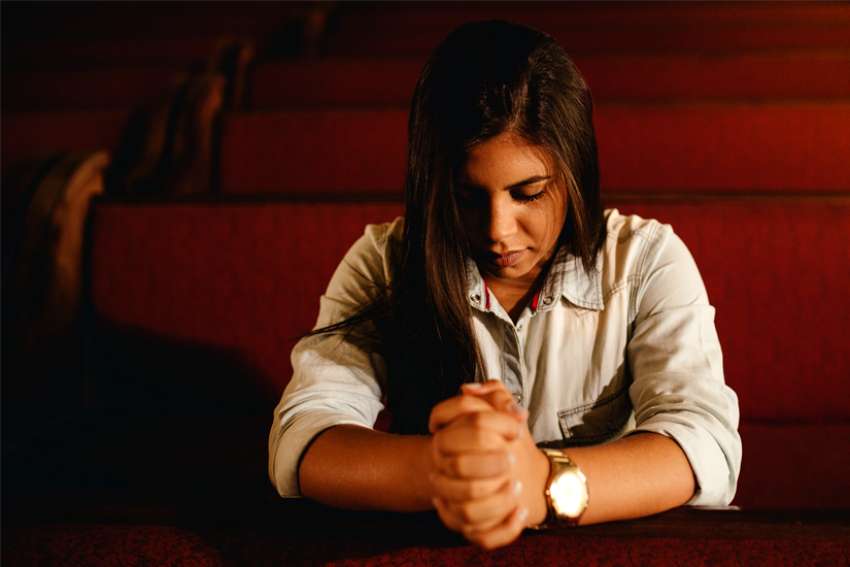Before we fall into the outdated, facile: “they’ll come back when they get married,” the fact is that Generation X (born roughly 1964-1982) is the last generation that barely fits that mold. “Nones,” the non-affiliated-with-religion, now make up 25 per cent of Canadian adults and 33 per cent of Canadian youth.
I endeavour to humbly offer some observations followed by some remedies.
1. Our youth need God.
Um, isn’t that obvious and what the Church is all about? No and yes. I recently read an article — in a Catholic periodical — outlining one of the “panic studies.” Neither “God” nor “Jesus” was ever mentioned. Big problem.
2. Youth and young adults are leaving the Church over sexual teachings — according to the polls.
Youth are imbibing an anti-Christian worldview with regard to the body and sexuality in particular — unimpeded — from their youngest years by the devil, the flesh, the world, the school and the media.
3. Our youth need thorough and constant evangelization and catechesis that “goes there.”
Not long ago, a young journalist from the Youth Speak News section of The Catholic Register stated that what he found sorely lacking in his Catholic school education was apologetics. He found that the Catholic faith was being taught in a vacuum, without any reference to the ideological tempests swirling all around him and his friends.
4. Youth experience practical atheism in the home.
Practical atheism doesn’t exclude going to church on Sundays, the displaying of some religious artifacts or identifying as Catholic. It means that in addition to some window dressing, we are “living as though God did not exist, living as though God doesn’t make a difference in our lives.”
So, what are Sister’s cure-alls and panaceas?
1. Give ’em God.
Although we have 2,000 years of helpful and legitimate, rich cultural Catholic doodads from all around the world stuffing our religious toy box, let’s not leave God at the bottom like a beloved but squashed teddy bear. He’s all we need, really, and our young people are thirsting to know Him who is truth, beauty, goodness and love itself.
Our youth need to find their identity in God first and foremost; to know they are willed, unique, loved.
2. Teach Theology of the Body in age-appropriate ways from playpen to university.
Let youth know what we are saying “yes” to when we say “no.” God, Creation, the Bible, the Church and science are in perfect agreement about the things that are bad for our flourishing, as well as the things that are good for it.
3. Introduce pre-teens and teens to the full rigour of Church doctrine and the Church’s intellectual tradition.
Idealistic youth don’t shrink from so-called “hard truths.” They shrink from a Church that hides it from them, soft pedals and waters it down. Let them read classic Catholic fiction, present Aquinas’ proofs for the existence of God, let them laugh with Chesterton, have them research the lives of the greatest scientists of all time who were devout Catholics. Give their active, fertile minds something to chew on — or at very least, let them know what’s available when they’re ready to get serious. If they stump you, go to catholic.com (the apologists at “Catholic Answers”).
Just as we need to educate ourselves about Theology of the Body in order to mentor our youth, we must educate ourselves about the entirety of our Catholic faith (having a Catechism of the Catholic Church handy is the best cheat!) Youth’s objections and challenges have a right to be aired and answered.
4. Parents are the first educators of — and models for — their children.
The “domestic church” cannot be outsourced: not just the learning, but the living out of faith at home. Humans, especially of the diminutive variety, learn by imitation.
Are grace at meals, the Rosary and bedtime prayers a regular on your daily schedule? Do kids see Dad and Mum turn to God for strength and advice when making decisions? Does “the right thing to do” mean referencing the Bible and will of God? Do parents love God above all? Is Mass more of a priority than hockey practice? Is religion fun, exciting and an experience of the transcendent — or a boring, begrudging, rule-bound drudgery in your household? Are you creating a mini-Catholic culture in the home that can spread from there?
(Sr. Helena Raphael Burns, fsp, is a Daughter of St. Paul. She holds a Masters in Media Literacy Education and studied screenwriting at UCLA. HellBurns.com Twitter: @srhelenaburns.)


